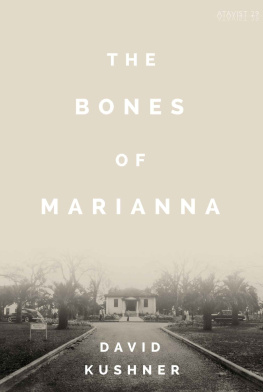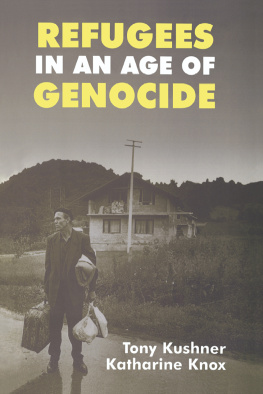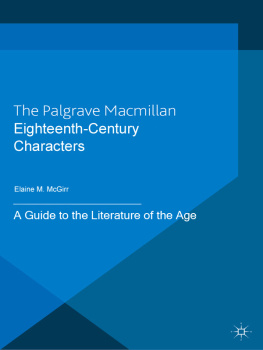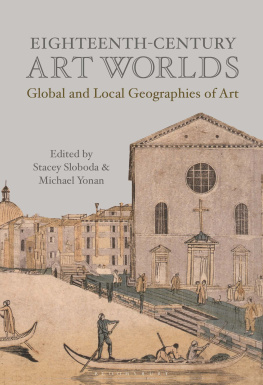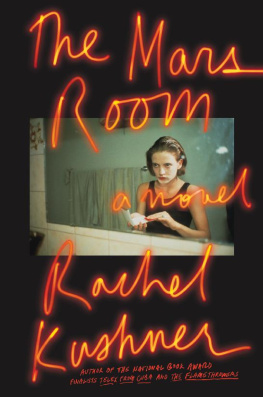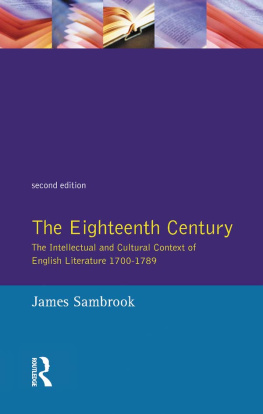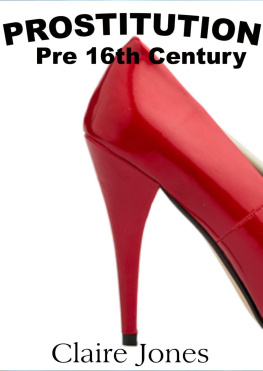Kushner - Erotic Exchanges ; The World of Elite Prostitution in Eighteenth-Century Paris
Here you can read online Kushner - Erotic Exchanges ; The World of Elite Prostitution in Eighteenth-Century Paris full text of the book (entire story) in english for free. Download pdf and epub, get meaning, cover and reviews about this ebook. year: 2013, publisher: Cornell University Press;b, genre: Home and family. Description of the work, (preface) as well as reviews are available. Best literature library LitArk.com created for fans of good reading and offers a wide selection of genres:
Romance novel
Science fiction
Adventure
Detective
Science
History
Home and family
Prose
Art
Politics
Computer
Non-fiction
Religion
Business
Children
Humor
Choose a favorite category and find really read worthwhile books. Enjoy immersion in the world of imagination, feel the emotions of the characters or learn something new for yourself, make an fascinating discovery.

- Book:Erotic Exchanges ; The World of Elite Prostitution in Eighteenth-Century Paris
- Author:
- Publisher:Cornell University Press;b
- Genre:
- Year:2013
- Rating:3 / 5
- Favourites:Add to favourites
- Your mark:
- 60
- 1
- 2
- 3
- 4
- 5
Erotic Exchanges ; The World of Elite Prostitution in Eighteenth-Century Paris: summary, description and annotation
We offer to read an annotation, description, summary or preface (depends on what the author of the book "Erotic Exchanges ; The World of Elite Prostitution in Eighteenth-Century Paris" wrote himself). If you haven't found the necessary information about the book — write in the comments, we will try to find it.
Erotic Exchanges ; The World of Elite Prostitution in Eighteenth-Century Paris — read online for free the complete book (whole text) full work
Below is the text of the book, divided by pages. System saving the place of the last page read, allows you to conveniently read the book "Erotic Exchanges ; The World of Elite Prostitution in Eighteenth-Century Paris" online for free, without having to search again every time where you left off. Put a bookmark, and you can go to the page where you finished reading at any time.
Font size:
Interval:
Bookmark:
EROTIC
EXCHANGES
THE WORLD OF ELITE PROSTITUTION
IN EIGHTEENTH-CENTURY PARIS
NINA KUSHNER
CORNELL UNIVERSITY PRESS
Ithaca and London
For Joon
It is with great pleasure that I thank the many people who helped me to write this book, which I began so many years ago. I have had the privilege of being trained as an historian by many inspiring and devoted scholars including Peggy Darrow, Simon Schama, Eugene Rice, Tip Ragan, Deborah Valenze, Martha Howell, and Isser Wolloch. In France, the librarians at the Bibliothque de lArsenal, the Bibliothque Nationale, the Archives de la Prfecture de la Police de Paris, and the Archives Nationales were helpful and creative in identifying and locating relevant materials. My navigation of the archives and my time in Paris were made immeasurably more pleasant thanks to Ann Morrissey, Jennifer Popiel, Jeff Horn, Paul Cheney, Charles Walton, and Brian Sandberg.
I remain overwhelmed by the generosity of a number of my senior colleagues who read full drafts of this book at various stages and offered substantial comments for its betterment, including Lenny Berlanstein, Katie Crawford, Lisa Jane Graham, Dena Goodman, Daryl Hafter, and the anonymous reader for Cornell University Press. Lisa and Dena in particular helped me to sharpen chapters, correct problems, ask better questions, and develop frameworks in which to answer them. I cannot thank them enough. I also owe a special thanks to Daryl Hafter, who, as we worked together on another project, continued to encourage me to finish this one.
My copresenters, collaborators, friends, and mentors from the Society for French Historical Studies and the Western Society for French History provided wonderful and generative feedback on all the many portions of this book presented at our annual meetings. Clare Crowstons comments on a number of papers pulled the central questions into focus. Clare Crowston and Kathleen Wellman shared their manuscripts with me, and Meghan Roberts shared her dissertation. Kate Norberg and Jeffrey Merrick availed me of their expert knowledge of the police archives. I also thank Christine Adams, Susan Ashley, Rafe Blaufarb, Mita Choudury, Lauren Clay, Julie Hardwick, Nancy Locklin, Rene Marion, Sarah Maza, Jacob Melish, Joelle Neulander, Michelle Rhoades, Charlie Steen, and especially Eliza Ferguson and Jen Popiel, who graciously and without fail took the time on so many occasions to help me think through ideas. Chapter 3 is all the better for having been subject to the close reading and tough questioning of the graduate students and faculty at the Department of Historys colloquium at the University of New Mexico.
At different stages, I received research help and editing assistance from Christine Crabb, Angie Woodmansee, and Steve K.F. Heise. Clyde Marlo Plumauzille jumped in for some last-minute translation help. At Cornell University Press, John Ackerman expertly guided the book through the review process.
I am extremely fortunate to work at Clark University. The university granted me a pretenure sabbatical that launched the writing of this book. The Higgins School for the Humanities awarded me several grants so that I could return to Paris to complete my research. The history department also provided considerable financial support, including awarding me the Hillery Summer Research Fellowship. Holly Howes at Goddard Library managed to find every text I asked for through interlibrary loan and never once gave me the stink eye for my horridly late returns. Drew McCoy and Amy Richter, as department chairs, helped me to create space in a busy academic schedule in which to write. Doug Little, though an American historian, regularly reminded me of Voltaires dictum that the perfect is the enemy of the good. Janette Greenwood showed me that it is possible to write, teach, and be a mother. Our administrative assistant, Diane Fenner, lightened the load in every possible way. My colleagues Taner Akcam, Norman Apter, Debrah Dwork, Thomas Kuehne, Wim Klooster, Olga Litvak, Ousmane Power-Greene, Paul Ropp, Michael Butler, Paul Posner, Patty Ewick, Debbie Merrill, Shelley Tenenbaum, Ora Skeleky, and Parminder Bachu made writing this book and working at Clark so much more pleasurable. I would especially like to thank Meredith Neuman, Betsy Huang, and Beth Gale for their steady friendship and Beth, in particular, for her help with translations.
To my parents, Linda and Harold Kushner, I owe a great deal, not the least of which was the inspiration to be an historian and the support to pursue this goal professionally. And then there was the babysitting. While I was off reading and writing about prostitutes, they occupied my children with more age-appropriate endeavors, no doubt encouraging them to find their own dreams. My sister, Diana Kushner, always believed this project would be worth the time put into it, and hence helped to make it so.
I had two children while writing this book, Leah and Miles. I thank them for the many long hours and days they let their mother spend at work, and for the joy they provided at those days end. The book became part of their own familial landscape. As a womens and gender scholar, I appreciate the value of children seeing mothers invest in their own careers. Being a working mother also gave me perspective on the kinds of questions that inform my scholarship. But now it is time to spend those extra hours helping my children write their own stories.
Neither the kids nor I would have done so well without the steadfast help of my husband, Joon Bai, who, in his quiet and loving way, created an environment in which this work could be done. It is quite something to share a life with such a person. I am lucky beyond measure. It is to Joon that this book is dedicated.
In February 1762, Paris police inspector Louis Marais returned to the dossier of Demoiselle Varenne after a six-year hiatus. Varenne had been a popular subject with Maraiss predecessor, Inspector Jean-Baptiste Meusnier, who in his capacity as head of the Dpartement des femmes galantes, wrote more than twenty reports on the dame entretenue (kept woman) in the space of four years. Between the inspectors dry coverage of the various details of Varennes work life and their sarcastic rendering of her character, a story emerges from their reports, one of misfortune and desperation, hard work and manipulation, love and, above all, individual agency.
According to her police dossier, Varenne was from Angers, the daughter of a surgeon. By age sixteen, for reasons not made clear in her file, she was a prostitute in the high-end Parisian brothel of Madam Carlier. She did not stay there for long. After a month, Varenne left the brothel as the mistress of an army lieutenant, who paid for her to be treated for venereal disease and then established her in a chambre garnie (a furnished rented room). She soon traded the officer for another patron, the son of a trsorier general , who, in turn, was quickly replaced by the son of an army lieutenant general. Within a year, Varenne had acquired her own furnishings, a mark of success as well as a source of security in the demimonde. Four years later, at the age of twenty-one, she was the head of a household. It was a small one, just Varenne and her sister, Demoiselle La Monthe. They lived in a five-room apartment in the Marais district, for which Varenne paid 650 livres a year. The two moved a number of times as Varennes fortunes dictated. Her sister worked as her maid.
Finally, in 1762 at age twenty-six and following a decade of mistress work, Varenne was ready to marry. Her fianc was not one of the many men who had maintained her. In fact, marriages between patrons and mistresses were extremely rare in the demimonde. Rather, Varenne planned to wed her long-time greluchon (boyfriend), a musketeer captain named Montire, the sexual partner to whom she had sworn eternal love while the paid mistress of other men. The two intended to elope that May, when Varennes patron, the marquis de Seignelay (Louis-Jean Baptiste Antoine Colbert, b. 1731), had to report to his regiment. Seignelay was a colonel in the French Army, fighting the Seven Years War. Varennes plans were the subject of Inspector Maraiss report and, apparently, his disgust.
Next pageFont size:
Interval:
Bookmark:
Similar books «Erotic Exchanges ; The World of Elite Prostitution in Eighteenth-Century Paris»
Look at similar books to Erotic Exchanges ; The World of Elite Prostitution in Eighteenth-Century Paris. We have selected literature similar in name and meaning in the hope of providing readers with more options to find new, interesting, not yet read works.
Discussion, reviews of the book Erotic Exchanges ; The World of Elite Prostitution in Eighteenth-Century Paris and just readers' own opinions. Leave your comments, write what you think about the work, its meaning or the main characters. Specify what exactly you liked and what you didn't like, and why you think so.


